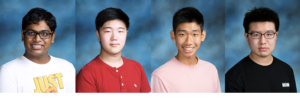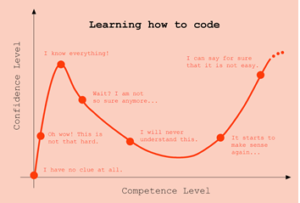Y12 Cas – Middle School Coding Club

CAS stands for Creativity, Action, and Service, and it is one of three essential elements that every student must complete to receive the IB Diploma. While not formally assessed, CAS provides opportunities for students to enhance their personal and interpersonal development through hands-on learning.
One of the components of CAS is a ‘CAS Project’, a collaborative series of student-initiated CAS experiences over several months engaging students in one or more CAS strands (creativity, activity, and service). Following the five CAS stages of Investigation, Preparation, Demonstration, Action, and Reflection, students can explore their passions whilst challenging themselves to initiate purposeful action around defined goals. The following months will bring a series of interviews where the STC Media Team interviews different students around school to highlight their CAS projects and initiatives.
This week, Ryan Yu speaks to the STC Media Team about his CAS project Middle School Coding Club, of which he is a leader. He decided to start the Middle School Coding Club with like-minded individuals to introduce middle school students to computer science.
Can you introduce your CAS project? What intentions does your CAS project have?
Our CAS project is a weekly club run after school every Tuesday from 3:30 to 4:30, in which we come up with projects in fields of computer science such as web development, robotics, and even basics to programming. The club intends to get middle school students interested in computer science and encourage them to pursue the subject in IGCSE or IB. We also want to show them the fascinating things computer science can achieve.
What impact/outcome do you hope your CAS project will have on the school community?
We hope that the younger year groups will realise the importance of computer science and inspire them to become computer scientists themselves. We also want to promote computer science across all genders, as seen by the club’s many female students. However, another project, Code For Life, also addresses the issue of gender equality in the computer science field.
Any changes due to COVID-19? How have you adapted?
Due to COVID-19, our club space is limited as EDB guidelines only allowed a set number of students per supervisor. We usually have a separate supervising teacher with us during the clubs to run different activities across different rooms for interested students to get around this rule.
What do you think is the role of computer science in society today? Why is computer science important?
Computer science will have an increasingly important role in every industry. Apart from the devices that facilitate our communication today, technological advances and scientific concepts will help improve education, medicine, finance, law, and many more sectors. Not only does computer science help the world run more efficiently, but it will also create a safer environment for every global citizen.
Why should we learn to program? How would it benefit us?
We should learn to program and code because of its practical uses. Moreover, computer science nurtures a problem-solving mindset and character traits like resilience and a growth mindset. These skills are not only found in computer science, but in other aspects of life, so computer science would serve as a strong foundation in a person’s future endeavours if they were to develop them properly.
Any advice for students who want to learn to program?
There is a chart comparing programming competence versus confidence that our supervisor, Mr Baumgarten, showed when we first began programming.

When you first begin, you are handheld through each step of code; you will feel very confident. Then, your confidence begins to descend as you become more and more perplexed at the overwhelming amount of information you have to learn. However, once you hit rock bottom, there is no way to go but up, and you will slowly begin to regain that confidence until you reach a peak of both programming competence and confidence. In short, it may seem hard, but don’t give up.
Written by: Rie Du
Edited by: Kadence Wong
